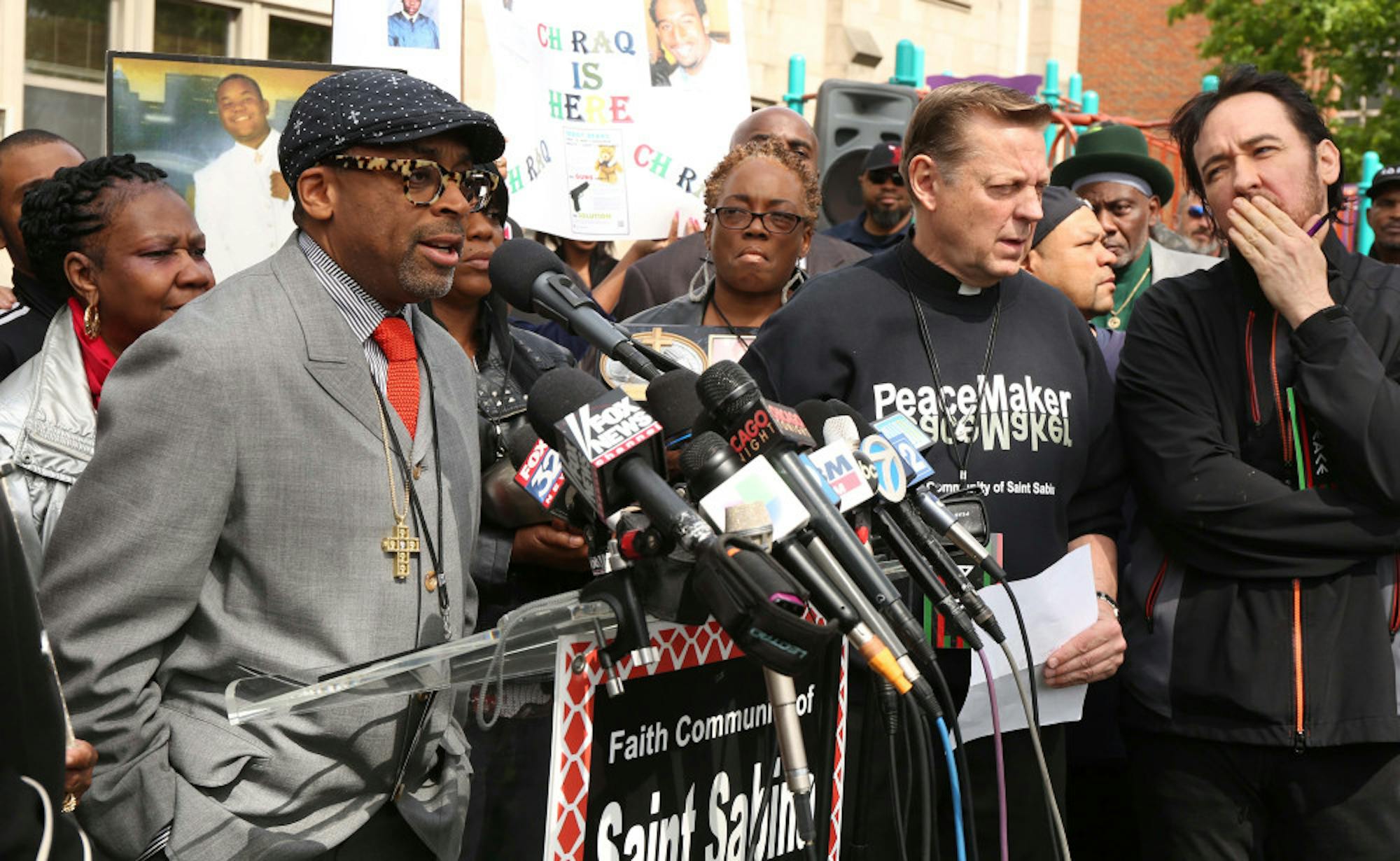Subtlety isn’t Spike Lee’s forte. It never has been, and it never will be. In some respects, his heavy-handed approach suits his body of work, which is as political and moral as it is artistic — as concerned with imparting a strong message as it is with entertaining its audiences, if not more so. So maybe the nicest thing that can be said about Lee’s “Chi-Raq” (2015), which was just released for streaming on Amazon Prime, is that it succeeds in imparting this strong message — sort of. It’s certainly topical, taking on the scourge of gun violence in Chicago and the innocent victims it leaves in its wake. And its message is urgent, if a little tired.
Okay, this reviewer is going to drop the suffocating pretenses of a critic and just speak to you as an aggrieved viewer who had to sit through this smoldering dumpster fire of a movie for two (2!) whole hours on a Saturday night: “Chi-Raq” is bad. It’s upsettingly bad, it’s incomprehensibly bad, it’s frustratingly bad. And this is coming from someone who desperately wanted it to be good — not just for personal enjoyment, but for the sake of everyone who fundamentally agrees with Lee’s underlying message and wanted to see their raw frustration with the current state of race relations in this country transmuted into art, as it was in Kendrick Lamar’s “To Pimp a Butterfly” (2015) and D’Angelo’s “Black Messiah” (2014). The script, co-written by Spike Lee and Kevin Willmott, feels like it was hastily dashed off on a lazy afternoon. How else does one explain the clunkers uttered by real human actors who voluntarily participated in this project (another head-scratcher) like, “You are crazy like glue” and “Peace and hair grease?” Or even this line straight from the mouth of Nick Cannon, who plays the male lead, Chi-Raq: “Guess I better press my luck. You just like my credit: bad as fuck.” Wow. You’ve come a long way since your “Wild ‘N Out” (2005 - present) days, Nick.
Now curious readers might be wondering, what’s with all the rhyming? “Chi-Raq” is a modern adaptation of the ancient Greek comedy “Lysistrata” by Aristophanes, which chronicles the efforts of the titular character to bring an end to the Peloponnesian War by rallying women on both sides of the conflict to boycott sex with their husbands until the men can negotiate a peace agreement. Lee changes the setting to modern Chicago, the title a nod to the shocking (and shameful) fact that more American lives have been lost in Chicago between 2001 and 2015 than in both the Iraq War and the War in Afghanistan combined, and updates the script with some contrived colloquialisms. Otherwise, he retains most of the elements of the original play, including the characters’ names, the names of the warring factions (Spartans and Trojans) and the rhyming in the script. He even incorporates Samuel L. Jackson as a kind of one-man Greek chorus named Dolmedes. Jackson is great, per usual, but having just seen him play a much better, feistier role in Quentin Tarantino’s “Hateful Eight” (2015), it’s hard not to be a little disappointed with his trite diatribes on police brutality, gang violence and the power of love — or lust — to effect social change.
If Jackson’s role is a bit of a letdown, then Teyonah Parris’ is a travesty — a failure to make better use of an impressive talent. That doesn’t mean she can’t hold her own in the role. Parris’ performance here is electrifying and captivating, if a little over-the-top—a far cry from her star turn as Don Draper’s secretary on “Mad Men.” But unlike the AMC show, the material here does her a tremendous disservice, not allowing her to showcase her full range of abilities. Along with everyone else in the movie, she is puffed up into caricature, with nary a human moment shining through. Pretty ironic, considering that the whole movie has to do with the horrific consequences that arise from the casual devaluation of black lives and black humanity. Whatever message Lee is trying to send by the end of the film — some swirling potpourri of personal responsibility, systemic change and female empowerment — is ultimately muddled by its shoddy delivery.
Spike Lee's 'Chi-Raq' is an abject failure

Writer and director Spike Lee holds a press conference outside St. Sabina Church on Chicago's South Side on Thursday, May 14, 2015 regarding his planned controversial movie "Chiraq." Lee, along with the Rev. Michael Pfleger, second from right, and actor John Cusack, right, and parents of victims of gun violence spoke to a large crowd in the church's courtyard.
Summary
As frustrating as it is long, Spike Lee's "Chi-Raq" offers very little to see beyond a strong performance by Teyonah Parris.
2 Stars





